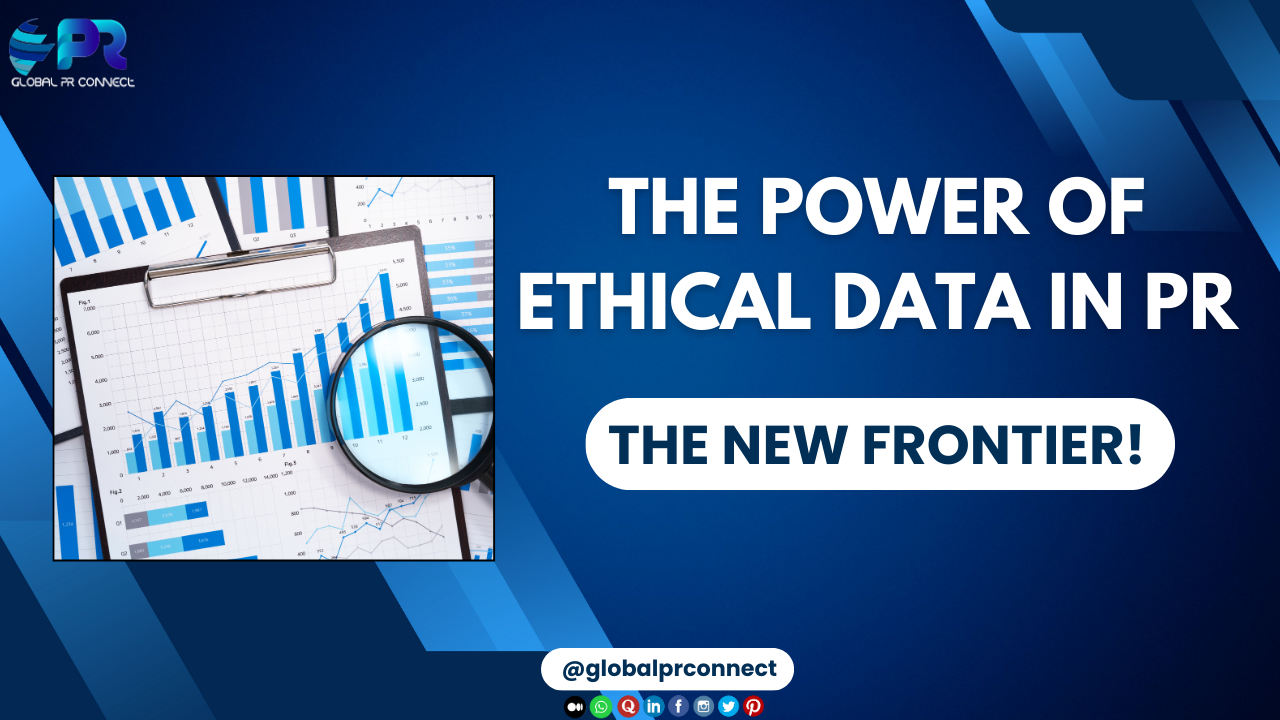The role of the PR professional becomes very critical when data drives decisions and shapes narratives. Managing data in PR in an ethical manner helps build trust and nurture the integrity of the profession around the globe. For transparency and integrity, data ethics go a long way in securing the future.
Every modern PR strategy has data at its center. Valuable insight into what will drive effective communication is contained: from analysis of audience behavior to the effectiveness of campaigns. As the saying goes, with great power comes great responsibility. Ethical usage of data is a matter of compliance not only with the law but also no less than a moral duty.
Transparency: Bedrock of Trust
Data practice transparency builds trust between an organization and its stakeholders. Transparency in both the collecting and storage of data informs the public that their information is in safe hands. This would be very important in times of data breaches or misusage of data.
1. Clear Communication: The data practices have to be clearly communicated to the audience by the organization. It involves specifying and explaining how the data will be collected, for what purposes, and who will have access to it. Such transparency can help build trust by giving extensive data policies in simple words.
2. Access and Control of Consent: The key to empowering people about their data is control. Acquiring their data after seeking express consent and an easy way of opting out of the collection secures them about their data.
Integrity: Uphold the Ethics
In this case, integrity in data ethics means that it has to be in accord with the best standards of honesty and accuracy. Professionals in the PR department should verify that the data used is accurate and that the communication made is truthful.
1. Reporting Accuracy: If anything, the worst case scenario when there is misinformation is loss of credibility because the data is misrepresented. PR professionals should test the accuracy of the figures they provide, not select the statistics that would help make their point.
2. Responsible Use ᅳUsing data ethically means respecting privacy and handling non-manipulative data. It, therefore, indicates that PR campaigns should, at no time, lead to the exploitation of personal data aimed against an individual or people.
The Role of PR in Promoting Data Ethics
The role of PR professionals is also very significant in view of promoting data ethics within their organization. The professions form bridges between organizations and stakeholders. They will need to exercise commitment and ensure that the organization’s ethical practices are communicated consistently and effectively.
1. Advocacy: Here, a PR team serves as a supporter of good data practice within an organization. It also includes the participation of data scientists, marketers, and legal teams in policy development and implementation related to ethical use of data.
2. Education: Educate employees and other stakeholders about the value of data ethics. Impart training and make resources available to all for them to understand the responsibility of maintaining integrity and transparency in work while dealing with data.
3. Crisis Management: When worst happensᅳdata breachᅳ it has to be managed as publicly and as candidly as practicable by PR experts at any price. Quick and candid communication can reduce the damage that is caused and it leads to the rebuilding of trust.
Challenges and Solutions
A number of the challenges in the digital landscape relate to data ethics. The PR professional will have to be sure that they are navigating correctly through this minefield of ethical dilemmasᅳfrom big data complexities to subtle AI-driven analytics.
1. Big Data and Privacy: The huge amounts of data collected often blur the lines of privacy. Strong data protection measures could reduce risks with regular audits.
2. AI and Bias: AI algorithms are biased to things present in the data. PR professionals, in association with data scientists, shall find and reduce biases to move ahead with appropriate and unbiased communication.
Conclusion
Data is indeed an asset in an information-driven world, and PR professionals must work with the use of data ethically. Data transparency and integrity increase trust and credibility. Clearly communicating data policies and seeking informed consent in using data responsibly are the ways in which a PR team can sail through the complexities of big data and AI by maintaining ethical standards. Data ethics serves both legal obligations and moral duty for empowering the PR professional to secure long-term reputations for trustworthiness and integrity that help safeguard the organization’s future.
 Skip to content
Skip to content 